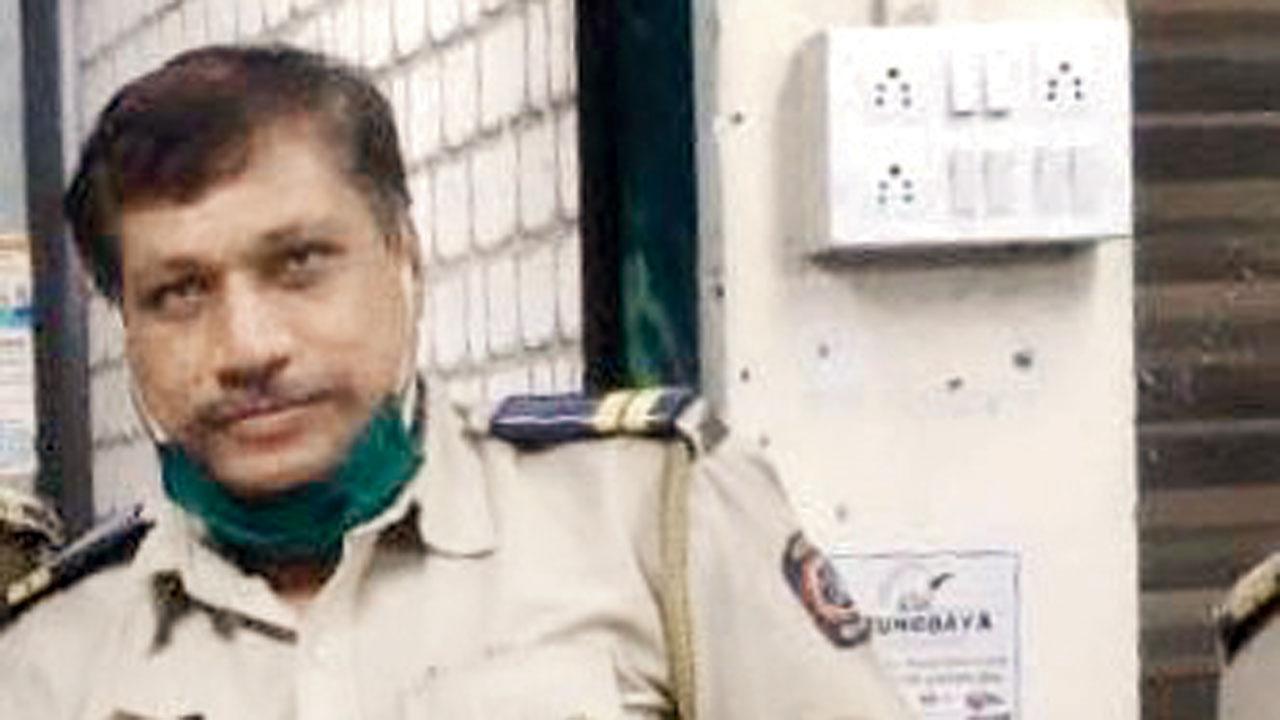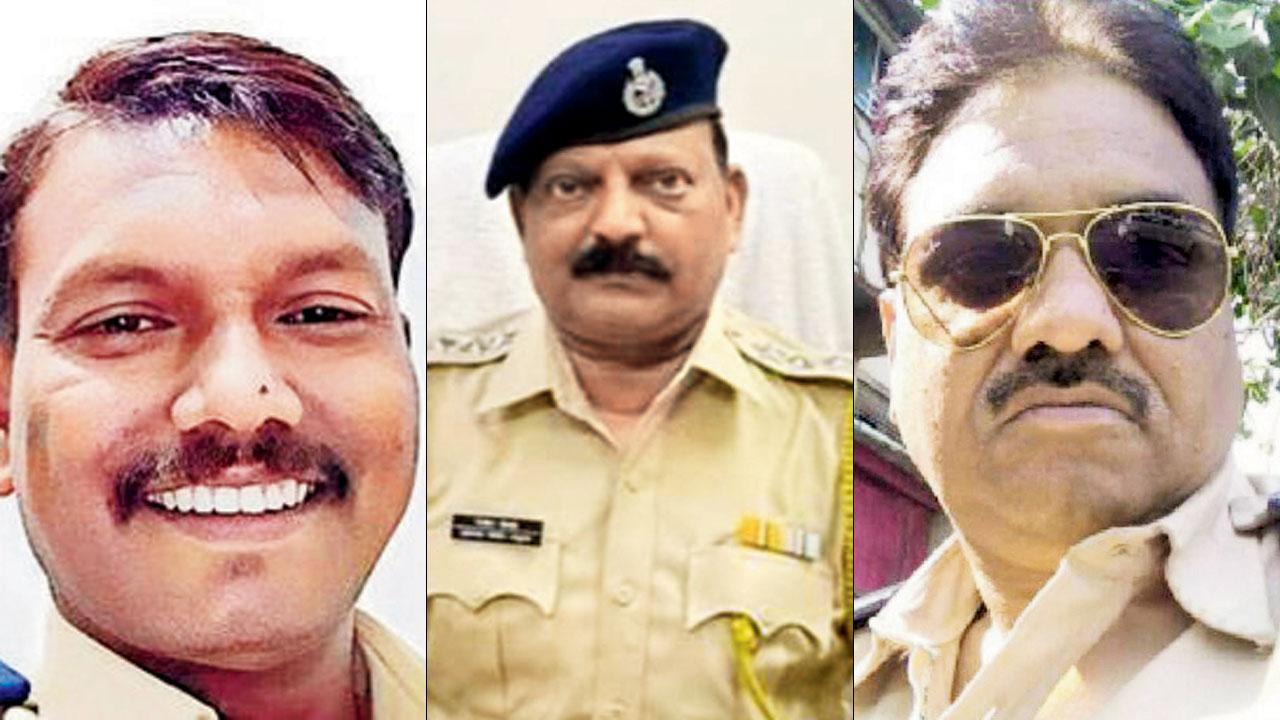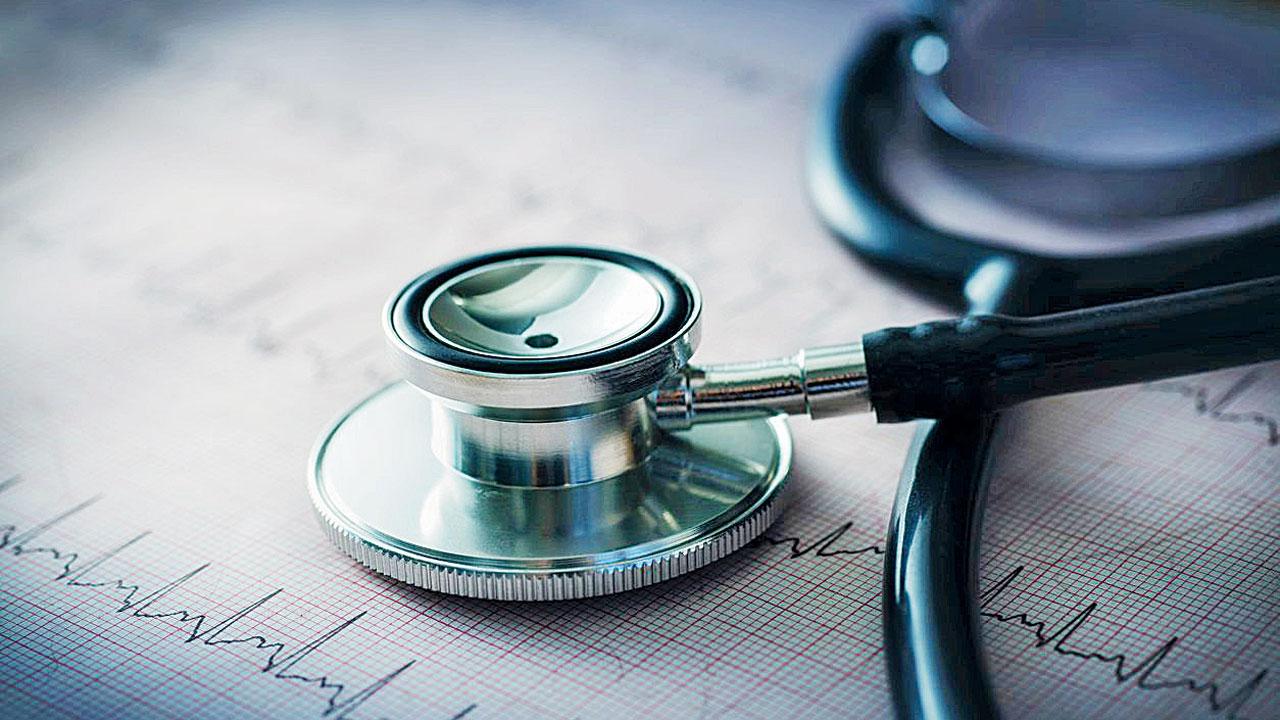Over the past 42 days, five cops have died of medical issues; personnel demand regular check-ups

Jiju Manikrao Ban, who died on April 3
He had recently been shifted to our police station. He seemed fit and fine but died of a heart attack while on duty at Wankhede stadium on April 3,” said a police officer reminiscing about his colleague Jiju Manikrao Ban, 45. In the past 42 days, five on-duty Mumbai cops succumbed to heart attacks.
From dealing with citizens’ grievances to providing security for VVIPs and events that keep on happening, the men and women in khaki are under constant pressure. Many a time, they have to skip meals and stay up for hours. Doctors and police officers have stressed prevention and early diagnosis through yearly check-ups. They told mid-day the state government should conduct screenings in a phase-wise manner to identify latent health problems.
He had recently been shifted to our police station. He seemed fit and fine but died of a heart attack while on duty at Wankhede stadium on April 3,” said a police officer reminiscing about his colleague Jiju Manikrao Ban, 45. In the past 42 days, five on-duty Mumbai cops succumbed to heart attacks.
From dealing with citizens’ grievances to providing security for VVIPs and events that keep on happening, the men and women in khaki are under constant pressure. Many a time, they have to skip meals and stay up for hours. Doctors and police officers have stressed prevention and early diagnosis through yearly check-ups. They told mid-day the state government should conduct screenings in a phase-wise manner to identify latent health problems.
February 26
Rama Mahale, 48, a constable at the Mulund police station experienced uneasiness around 5.30 pm at the Kalidas Sports Complex in Mahale. According to a police officer, he had been assigned to driving duty. After he complained of chest pain, Mahale was rushed to a nearby hospital, where ECG and other check-ups were done. He was immediately shifted to the ICU but passed away around 6.05 pm.
Also Read: Mumbai: Andheri, Bandra and Grant Road log highest Covid-19 cases

Constable Rama Mahale; ACP Nitin Bobde; Head Constable Sujit Pawar
March 11
Nitin Bobde, 55, the assistant commissioner of police of Yellow Gate division, was found in an unconscious state after eating a meal and going into his antechamber. He was rushed to St George Hospital where the doctor declared him dead. According to his post-mortem report, the prima-facie reason for his death was a heart attack.
March 17
Head Constable Sujit Pawar, 49, deputed at the Santacruz police station, was rushed to the nearest hospital after experiencing uneasiness, but in vain. A colleague told mid-day, “Most of our policemen are under stress and have hypertension. Many times, they go on sick leave to manage their health problems. He was suffering from hypertension. Senior Police Inspector Rajendra Kane decided to help Pawar’s family. All officers and staff contributed R6 lakh in total and handed it over to his family.”
March 25
Thomas Pinto, 51, was riding a bike while on security and protection duty at Marine Drive and had stopped at a signal when he experienced chest pain. He was rushed to St George Hospital, but sadly, he succumbed.
April 3
Jiju Manikrao Ban, 45, a constable attached to the Chembur police station, was posted in south Mumbai on Indian Premier League duty. A colleague said, “He suddenly experienced chest pain around noon and was rushed to St George Hospital. He was critical and admitted to ICU but passed away after some time.”

Doctors said the government should conduct health screenings in a phase-wise manner. Representation pic
What police officers said
On the condition of anonymity, a senior police officer said, “It’s not like the government is doing nothing; 50 types of disease-free treatments are done at several private hospitals empanelled by the government. However, more focus must be given to the prevention of disease. Screening at regular intervals is a must for lung, heart, kidney and liver function apart from the routine CBC, X-rays and eye check-ups.”
An officer from the eastern suburb said, “Everyone has a stressful job. Those who join the police force are well aware of the kind of work and time they have to devote. We can’t run away from this. What we need, apart from physical health check-ups, is to look after mental health too. Stress management techniques must be taught. Once you master them, it won’t impact your body. After all, stress is also linked to heart attacks.”
Health experts speak
Dr Prashant Mishra, a cardiac surgeon at Sion Hospital, said, “Heart ailments are on the rise. Whether it is common people, businessmen, policemen or politicians, everyone is affected by this issue. Stress, improper diet, and inadequate sleep are the reasons behind cardiovascular diseases. Like doctors, policemen are also the protectors of the community. They should have a proper diet, get adequate sleep and have limited working hours. The government must ensure proper screening of policemen at regular intervals and there should also be a focus on their mental well-being.”
Dr Anil Sharma, professor and head of the cardiology department at Bombay Hospital, said, “Irregular working schedules, lack of adequate sleep, accommodation problems and work stress are the major reasons behind such incidents. So far, policemen who are 50 years old come to me to check their fitness. However cardiac diseases are now affecting younger people. Around 40 per cent of heart attacks and sudden cardiac arrests are seen among the younger population. The time has come for the government to screen those above 50 years once a year, 35 to 49 once in two years, and 25 to 34 years once in three years. This will help to keep a tab on health. Prevention and early diagnosis will bring down such incidents It is important for policemen to avoid unhealthy foods and eat meals at regular intervals. They must have uninterrupted sleep for at least seven hours.”
A senior police officer said, “Currently, those who complete 50 years have to undergo a mandatory fitness test. But now, the younger population is also getting heart attacks so the government should start yearly screenings of all policemen. At one go, it is not possible so they must carry them out on the basis of age groups.” mid-day called up Mumbai Commissioner of Police Vivek Phansalkar and texted him for his comment but didn’t get a response.
3 April
Day when last such incident occurred
 Subscribe today by clicking the link and stay updated with the latest news!" Click here!
Subscribe today by clicking the link and stay updated with the latest news!" Click here!










